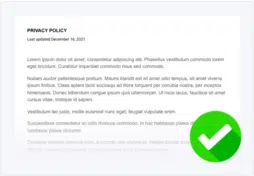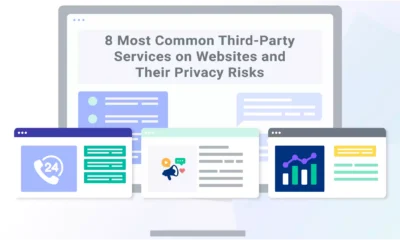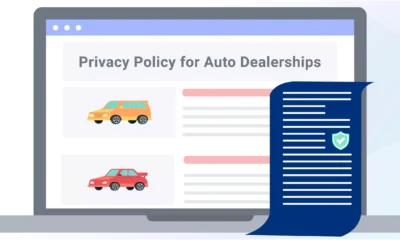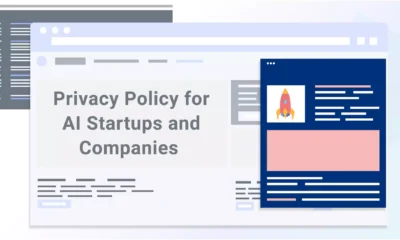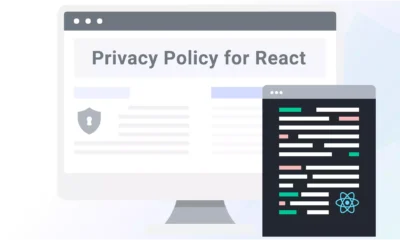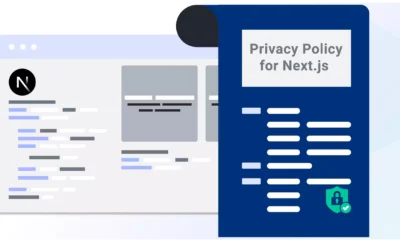Life coaching is a business about building trust between practitioners and clients.
When you have access to clients’ personal information, you may be subject to following different data privacy laws, many of which require you to post a privacy policy.
Your clients also want to know what information you’re collecting from them and why.
Below, I explain why life coaches should post a privacy policy, what goes into one, and the different ways to make one for your site.
- Creating a Life Coach Site Privacy Policy
- What Is Privacy Policy?
- Which Privacy Laws Affect Life Coach Websites?
- Does Your Life Coach Website Legally Need a Privacy Policy?
- What Should You Include In Your Life Coach Website’s Privacy Policy?
- Where To Display Your Life Coach Site’s Privacy Policy
- Summary
Creating a Life Coach Site Privacy Policy
You can make a privacy policy for your life coach website by using a generator, a template, or writing one on your own.
Use a Privacy Policy Generator
The simplest way to make a privacy policy for your life coach website is to use Termly’s free Privacy Policy Generator.
Our solutions are legally-backed and, at Termly, we’re committed to protecting the privacy of our users.
Our comprehensive solution asks easy questions about your business and helps you meet applicable laws.
It then generates a unique policy based on your answers that you can embed directly on your site, taking all the guesswork out of data privacy requirements.
See what it looks like in the screenshot below.
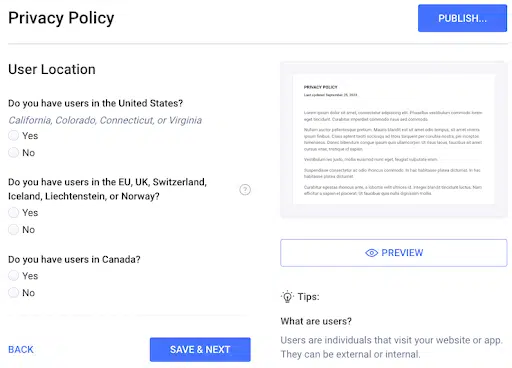
With a Template
You can also use a privacy policy template to make a policy for your life coach website.
Just fill in the blank sections of the template with details about your business. If a clause doesn’t apply, remove it before adding the policy to your site.
Templates take a little more time and effort than a generator, but they’re still a quick and easy way to make a policy for your life coaching business.
Write It Yourself
You can also write a privacy policy on your own, but be careful if you choose this method.
Data privacy laws hold you accountable, so you risk getting fined for noncompliance if you miss any important detail.
Writing your own policy is typically only recommended if you have access to a lawyer or extensive knowledge of data privacy laws.
What Is Privacy Policy?
A privacy policy is a legal document required by several different privacy regulations that explains the following details to your clients:
- What personal information you collect from users
- Why you collect the information and how it’s used
- If you share the information with any third parties
- What rights your users have over their information, and how to act on it
- Your company contact information
It should be easy for all website visitors to find, read, and understand.
Which Privacy Laws Affect Life Coach Websites?
Your life coach website might be affected by the following data privacy laws:
- General Data Protection Regulation (GDPR)
- California Consumer Privacy Act (CCPA)
- Colorado Privacy Act (CPA)
- California Online Privacy Protection Act (CalOPPA)
- Children’s Online Privacy Protection Act (COPPA)
- Canada’s Personal Information Protection and Electronic Documents Act (PIPEDA)
These laws set rules about how organizations can collect and use information from consumers.
They apply based on factors like where you’re located, where your users come from, and how much data you process.
Does Your Life Coach Website Legally Need a Privacy Policy?
Your life coach website may legally need a privacy policy.
For example, if your services are available to California users, you must comply with CalOPPA, which outlines privacy policy guidelines.
Similarly, if your services are available in Europe and you process data from website visitors in that region, you must follow the GDPR, which requires a privacy policy.
But you also need a privacy policy if you use any third-party services, like Google Analytics or Ads, as written in Google’s terms of use.
What Are the Benefits of Having a Privacy Policy on Your Life Coach Website?
Having a privacy policy can benefit your life coach website in the following ways:
- Compliance with privacy laws: A privacy policy helps your website follow applicable privacy laws and avoid fines and other legal penalties.
- Builds consumer trust: Users expect to find a privacy policy on your website. Posting an easy-to-read policy shows they can trust you with their data.
- Possible SEO benefits: While posting a privacy policy doesn’t directly influence SEO, it encourages users to browse your site longer, which may boost rankings.
Transparently informing website visitors that you’re collecting and using their personal data is the right thing to do.
It’s their data, after all — it’s a best practice to let them know exactly what you’re doing with it.
What Should You Include In Your Life Coach Website’s Privacy Policy?
Plan to include all of the following clauses in your life coach website’s privacy policy.
What Personal Data You Collect
All privacy policies must explain what personal data is collected from website visitors.
List the information in an easy-to-read, straightforward way, like using a table or a bullet list.
Remember to include categories of personal and sensitive personal information, which is often subject to stricter legal requirements.
Why and How You Collect the Data
You’re legally required by laws like the GDPR and the CCPA to explain why and how you collect personal data from users in your privacy policy.
Under the GDPR specifically, this is called your legal basis.
You also should describe if you collect data from the individual directly, from publicly available information, or from other sources.
If You Share Data With Third-Parties
Privacy laws like the GDPR and CCPA require you to inform users if you share their data with any third parties, which include services like:
- Google Ads
- Google Analytics
- Cloud storage providers
- Customer Relationship Management systems (CRMs)
- Research and development partners
List the categories of third parties you share data with and the categories of data shared with those entities.
What Rights Users Have Over Their Data
You’re legally required to explain in a clause in your privacy policy what rights your users have over their data and how they can act on those rights.
Do this for every law your life coaching business must comply with — make multiple clauses for each law if more than one impacts you and your users.
Updates to Your Privacy Policy
Add a clause in your privacy policy explaining how you’ll communicate updates to your policy to users, which you should do whenever your data collection or processing activities change.
Your Company Contact Information
Provide your company contact information so users know how to reach you if they have questions, comments, or concerns about your privacy policy.
Where To Display Your Life Coach Site’s Privacy Policy
Plan to display your privacy policy in multiple locations throughout your life coach website.
Website Footer
The footer of your site is static. Posting here ensures users always have access to your policy.
On Payment Screens
Payment screens are a common places where websites collects data, so give users access to your policy before they give any data to you.
On Account Creation Pages
Account creation pages is another area where your site likely collects data, so a link to your privacy policy is essential.
Anywhere Data Collection Occurs
To comply with laws like the GDPR, post a link to your privacy policy wherever your site collects user data. It’s important that users can easily find and read your privacy policy any time.
Summary
If you’re a life coach, adding a privacy policy to your website can help ensure you align with data privacy laws and build a relationship of trust with your users.
It shows you take data privacy seriously and responsibly handle client’s personal information.
Easily make a privacy policy for your life coach website using our Privacy Policy Generator.



